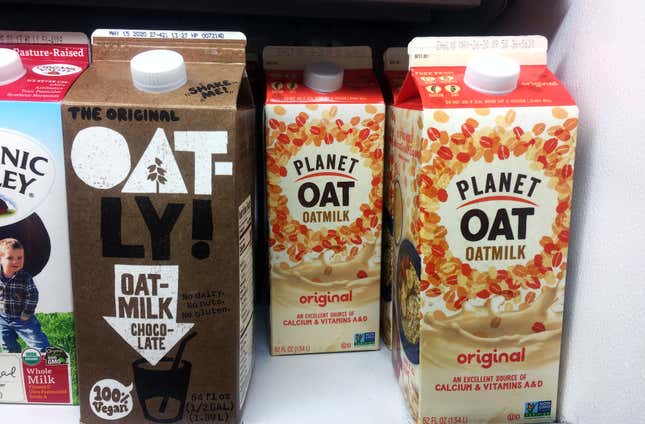Of Course There's Sugar in Oat Milk….?
Latest

If you eschew cow milk because it’s too thick, too “creamy,” or simply does not agree with your delicate tummy, there are many an alternative on the market. Almonds, pistachios, cashews, rice, and macadamia nuts have all been ground and pulverized and milked to produce liquids that those who do not care for dairy consume. Oat milk, the runaway hit of the alternative milks, is having a moment—yet that moment, as of this beautiful Tuesday in April, is not good. There’s sugar in oat milk, you see. And for some reason, everyone is mad.
On Tuesday, Medium published a blog about Oatly’s rise to the top, detailing the ways we got to this point, where the Swedish oat milk brand is poised to possibly IPO for $10 billion. This caused people online to start talking about oat milk, which led to the following tweet, which references a blog post about oat milk written in August.
-

-

-

-

-

-

-

-

-

-

-

-

-

-

-

-

-

-

-

-

-

-

-

-

-

-

-

-

-

-

-

-

-

-

-

-

-

-

-

-








































